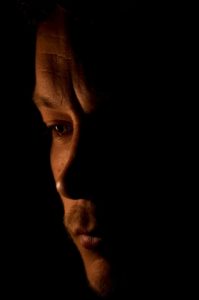
Contributor: Megan Wilson, BS, CADC, Timberline Knolls Residential Center
As lawmakers, advocates, and family members continue to highlight the devastating heroin epidemic in America, greater awareness is being drawn to this crisis impacting millions. But, is there a connection between heroin addiction and OCD which is a co-occurring issue?
According to the Center for Behavioral Health Statistics and Quality, almost 600,000 individuals struggled with heroin addiction out of the 20.5 million Americans that had a substance use disorder [1]. In 2015, almost 13,000 overdose deaths were related to heroin, and it is estimated that 23 percent of individuals who use heroin develop an opioid addiction [2,3].
Addictions are complex illnesses that are characterized by an individual’s pathological pursuit of relief and/or reward by substance abuse behaviors [4].
Understanding the Mental Health Connection
For many people who suffer from a heroin addiction, there is a variety of complex factors that have influenced the development of the substance use disorder. Mental illness commonly co-occurs with substance abuse and addiction, though is not always identified or diagnosed.

This is an anxiety disorder characterized by recurring thoughts that trigger anxiety and irrational fears, followed by the engagement in compulsive, repeated rituals.
The compulsive rituals often provide temporary relief from the anxiety and fear while being performed, though the individual’s anxiety commonly returns after the ritual is stopped.
The diagnosis of a mental disorder may not occur until symptoms have progressed and, in many instances, untreated mental illness may influence the development of addiction through self-medication.
For example, in the case of anxiety disorders, like obsessive compulsive disorder (OCD), an individual may seek out the high from substance abuse as a means of lessening symptoms associated with the mental illness.
Researchers have identified several overlapping factors between substance use disorders, including heroin addiction, and mental illness, such as genetic predisposition, brain deficits, the experience of trauma and more. The combination of these factors can increase a person’s susceptibility to developing both addiction and mental illness. Having a mental illness, like a mood disorder, can increase an individual’s susceptibility to substance abuse and vice versa.
Screening for mental illness in drug addiction treatment is an important step in identifying potential underlying mental illnesses. Seeking comprehensive treatment for both is necessary to achieve lasting recovery.
What is Obsessive Compulsive Disorder (OCD)?
OCD is a mental illness that often co-occurs alongside substance use disorders. According to the Journal of Anxiety Disorders, over 25 percent of those who seek out treatment for OCD also meet the criteria for a substance use disorder [5].
Common compulsive rituals might include excessive hand washing and/or cleaning, counting items, tapping, double-checking things like locks, switches, and appliances, repeating certain words, hoarding items, and arranging/re-arranging.
A person with OCD is often trapped in a vicious cycle of obsessive thoughts and compulsions to the point where the quality of their life is negatively impacted. For some individuals with OCD, substance abuse may provide a temporary relief from the anxiety that is commonly and frequently experienced.
Heroin Addiction and OCD
Research has found that for the majority of individuals with both OCD and substance use disorders, the OCD onset preceded the development of the addiction [5]. Research findings also suggest that substance use, including heroin addiction, may function to reduce anxiety states experienced with OCD [5].
Opioid drugs like heroin are often sought to relieve pain, anxiety, and enhance relaxation, which may be inadvertently sought by someone dealing with a chronic mental illness like OCD.
Because of the complexity of both co-occurring heroin addiction and OCD, comprehensive treatment should be sought in order to receive the best possible chance for a full recovery. Working with a multi-disciplinary treatment team can help address the many different factors involved with both a heroin addiction and OCD.
If you have been struggling with these co-occurring disorders, know that there is help available and hope for your healing and recovery. Be sure to search for and connect with a treatment facility that specializes in co-occurring disorders in order to effectively address your unique issues and optimize your care.
Remember to take things one step at a time. Dealing with both of these illnesses can feel overwhelming, and by asking for help, you are taking a powerful step toward recovery.
References:
[1]: Center for Behavioral Health Statistics and Quality. (2016). Key substance use and mental health indicators in the United States: Results from the 2015 National Survey on Drug Use and Health (HHS Publication No. SMA 16-4984, NSDUH Series H-51).
[2]: National Institute on Drug Abuse. (2014). Drug Facts: Heroin. Bethesda, MD: National Institute on Drug Abuse. Available at http://www.drugabuse.gov/publications/drugfacts/heroin.
[3]: Rudd RA, Seth P, David F, Scholl L. Increases in Drug and Opioid-Involved Overdose Deaths — United States, 2010–2015. MMWR Morb Mortal Wkly Rep 2016
[4]: American Society of Addiction Medicine. (2011). Public Policy Statement: Definition of Addiction. Chevy Chase, MD: American Society of Addiction Medicine. Available at http://www.asam.org/docs/publicypolicy-statements/1definition_of_addiction_long_4-11.pdf?sfvrsn=2.
[5]: Maria C. Mancebo, Ph.D., et al. Substance use disorders in an obsessive compulsive disorder clinical sample. J Anxiety Disorder 2009 May; 23(4): 429-435.
About the Author:

Megan Wilson, BS, CADC has been working at Timberline Knolls since 2013. She facilitates psycho-educational group therapy, completes substance use assessments, and takes on the leadership role of the Addictions Specialist team.
She also individually meets with residents to support a better understanding and application of 12-step recovery.
Thank you to Timberline Knolls for providing this article.
Timberline Knolls is a leading residential treatment center for women and adolescent girls, ages 12 and older, with eating disorders, substance abuse, trauma, mood and co-occurring disorders. Located in suburban Chicago, residents receive excellent clinical care from a highly trained professional staff on a picturesque 43-acre wooded campus. An adult partial hospitalization program (PHP) is also available in nearby Orland Park, Ill., for women to step down or direct admit. For more information on Timberline Knolls Residential Treatment Center, call 630-755-5173. We are also on Facebook – Timberline Knolls, LinkedIn – Timberline Knolls and Twitter – @TimberlineToday.
The opinions and views of our guest contributors are shared to provide a broad perspective of addictions. These are not necessarily the views of Addiction Hope, but an effort to offer a discussion of various issues by different concerned individuals.
We at Addiction Hope understand that addictions result from multiple physical, emotional, environmental, and genetic factors. If you or a loved one are suffering from an addiction, please know that there is hope for you, and seek immediate professional help.
Published on June 21, 2017
Reviewed and Updated by Jacquelyn Ekern, MS, LPC on January 12, 2021
Published on AddictionHope.com
